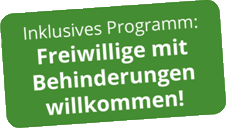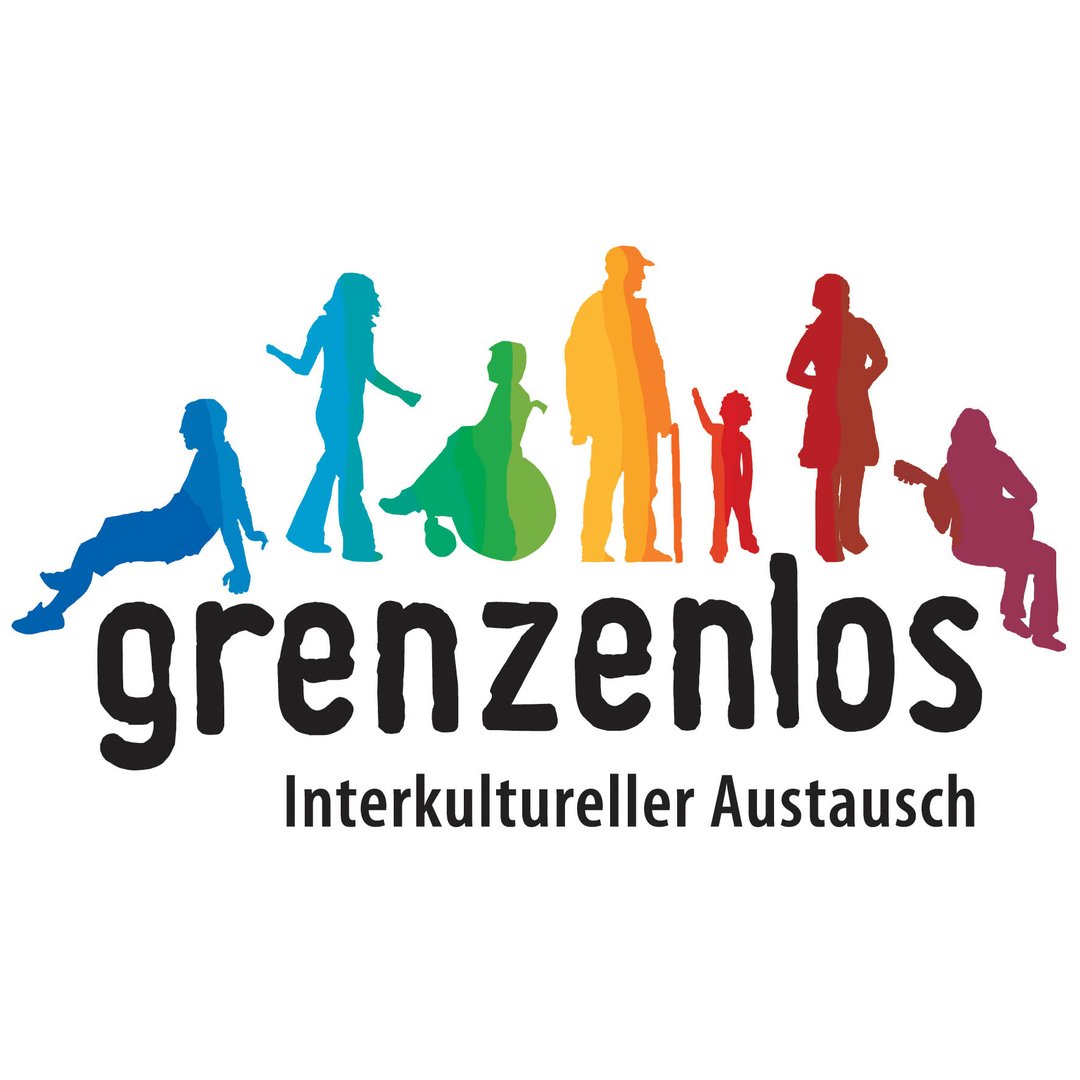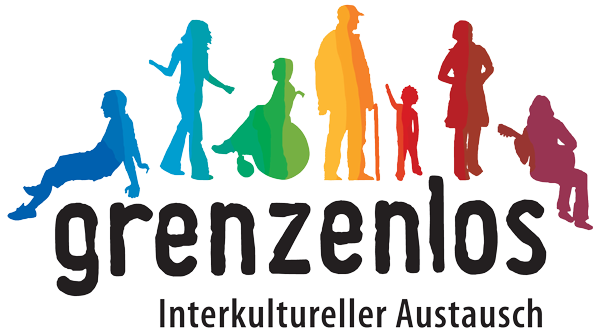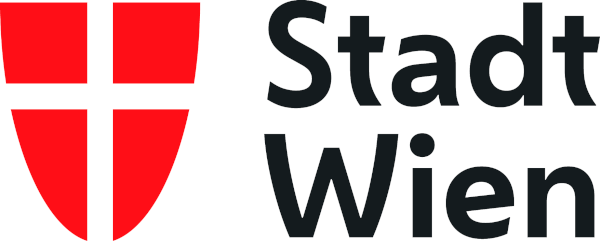The European Solidarity Corps (ESC) is an EU funded program for young people wishing to engage in different forms of solidary activities, one of them being long-term volunteering project. As a participant of a European Solidarity Corps individual volunteering project, you can go abroad from 2 to 12 months (in special cases from 2 weeks to 2 months) and contribute to a non-profit organization. In special cases, it is also possible to participate in a local volunteering activity, but usually you participate in a project abroad.
Participation in the European Solidarity Corps is free of charge for you. Accommodation, food, pocket money, insurance and a language course are organized and financed. Outward- and return journey are covered by a lump sum.
The European Solidarity Corps in Vienna is called the MELANGE program. It is carried out by Grenzenlos in close cooperation with WIENXTRA and the city of Vienna. It enables special preparation and support before, during, and after a European Solidarity Corps project for volunteers and participating organizations.
Who can participate?
Anyone between the age of 18 and 30 who is living in one of the ESC program or partner countries can participate in projects of the European Solidarity Corps. You don’t have to have the citizenship of one of these countries, but you need to be at least a registered resident in one of these countries.
The age and residence are the only requirements. Other than that, it does not matter whether you have finished school, are currently studying or working, doing an apprenticeship, are looking for a job or doing none of that – it doesn’t matter. You don’t need any special education or professional training, no certain proficiency of a foreign language, no previous experience or knowledge to participate in European Solidarity Corps volunteering projects. Your main qualification is your motivation and engagement.
Any youngsters, no matter their background or current situation, are welcome to participate in the ESC volunteering projects. In fact, youngsters who have fewer opportunities because they face barriers due to, for example, health problems, disabilities, educational difficulties, economic obstacles, geographic obstacles, social discrimination, etc. are prioritized and given special support in this program.
What is the duration of the voluntary service?
The projects are usually between 2 and 12 months, in specific cases shorter periods are possible. This may be the case, for example, if it is the first time for you to go abroad and you are speaking no foreign language (not even English), or if you are a wheelchair user or need some special support for other reasons – if the location of your placement should meet specific requirements or your service has to be prepared particularly well. In certain cases, it is also possible to participate in a local volunteering activity, meaning in a project that takes place in the country that you are living in. This possible, for example, for youngsters who are legally not allowed to leave the country (e.g. asylum seekers) or youngsters who cannot move abroad due to their disability.
What will be the work during an European Solidarity Corps placement?
Your specific tasks depend on the organization that hosts you. Most project are in the areas of social work (e.g. working with children and youngsters, working with people with disabilities, refugees, etc.) but there are also many projects in the field of sports and recreation, art and culture, and environmental protection and sustainability, to name a few. What all projects have in common is that they are charitable and non-profit and offer interesting tasks and a safe work environment for volunteers. There is an ESC project database, where you can search and filter projects according to field of work, location, etc. More information here.
As a volunteer, you will work about 30 to 38 hours per week for the project, 5 days per week. Two days per week you are free, and additionally you will have 2 days per month vacation days. The vacation days must be agreed with the host organization in time.
You will not serve as substitute for regular staff but add to the support and quality that the host organization is giving to their target group.
Spending up to one year abroad will provide you with the possibility to gather diverse experiences and to develop significantly on a personal, and maybe also professional, level.
You can find numerous reports of previous European Solidarity Corps volunteers on our website here.
Which organisations are involved?
Before applying for an ESC volunteering project, you need to find a supporting (sending) organization from the country you are currently living in. This organization will prepare you for your time abroad, support you with your application and throughout the volunteering experience.
You can find more information on how to find a supporting organization here.
For ESC volunteering projects in Vienna, Grenzenlos is the lead (coordinating) organization. This means that we apply for the funding of your volunteering activity and coordinate all administrative things (e.g. organization of accommodation, payment of pocket money, support with registration of residency, etc.)
You will do your daily work as a volunteer in your host organization. This is the organization that designs and hosts your volunteering project and that you will work with. The host organization will provide you with a tutor (a person explaining all tasks and work-related information to you) and a mentor (a person who supports you throughout the project and guides your learning journey). The host organization is also responsible for providing you with the work schedule and safe working conditions.
Apart from these three organizations there is a National Agency in every program country. The National Agencies are the institutions that grant the funding for ESC volunteering projects and control the implementation and quality of all volunteering projects in their country. The National Agency is also the institution that organizes trainings for volunteers. As a volunteer you must attend an on-arrival training at the beginning of your project and, if your project is longer than 6 months, also a mid-term training halfway through your volunteering activity. These events are organized by the National Agency and will help you to integrate in your host country and host organization, and to find your personal role as a volunteer.
In Austria the National Agency is the OeAD.
Important information for us and the project
If have any (physical or mental) health problems, allergies, or medical conditions, for which you need constant or temporary medical support, you should in any case talk to your doctors and also inform Grenzenlos about your needs. Of course, we will treat this information confidentially, but we must be informed about it to organize adequate support and safe conditions for you during your volunteering.
In case you keep such important information secret, please be aware that in case problems arise because of it, it is your own responsibility, and that the host organization and/or Grenzenlos may ask you to leave the project prematurely.
Basically, there are no health problems or diagnoses which speak against your participation. The supporting and hosting organizations bear a high degree of responsibility for their volunteers, staff and clients, and it is essential for them to be able to properly prepare your volunteering activity according to your needs. We ask you to share this personal information with us honestly, so we can make sure that you are safe, comfortable, and well supported during your volunteering activity.
If you are in doubt, you can always discuss this with your medical support in your home country and/or your support organization.
Which services will I receive as a volunteer?
Seminars
You will be invited for a Pre-departure Training in your home country (by your support organisation and/or National Agency), and an On-arrival Training and a Mid-term Meeting in the country of your volunteering activity (organized by the local National Agency). All these trainings are free (you do not have to pay for travel, accommodation, or food), but participation is mandatory!
Travel
Your outward- and return journey will be supported financially through a travel lump sum. Sometimes, all expenses can be covered, in some cases there will remain a deductible (which you have to cover yourself). Your travel journeys/tickets are always booked in accordance with the supporting and the coordinating organizations.
Only the expenses will be covered, which effectively result from your outward and return journey. That means that if you want to visit your family at home during your holidays, you have to buy and pay for the ticket yourself. Also travels within the country of your residence are not covered by the program, except for the transport between your accommodation and host organization.
Accommodation
Accommodation will be provided to you by the project. This can vary, depending on the project: you can live “in the project” (e.g. a room in social housing), or with a host family, in a shared apartment together with other volunteers or students, or in rare cases alone. You cannot choose your accommodation as it depends on the resources and possibilities of your host organisation. Usually, information about the accommodation is stated in the project description and you will receive detailed information (address, number of flatmates, etc.) a few weeks before your arrival.
The accommodation will not be luxurious, but it will be safe and cover all your basic needs.
Food
Food will either be provided by your host organization, or you will receive a monthly food allowance (money). In kindergartens it is for example common practice that the volunteer eats lunch at the project and receives a small amount every month as food allowance for breakfast and dinner.
In case you have certain dietary habits or food allergies, you should state this information in your application form!
Local transport
Local transport means transport from your accommodation to your project (if you are not living in the project anyway). This could be a ticket for the local bus or a bicycle, for example. In Vienna we usually provide you with a monthly public transport ticket which is valid for all buses, trams, trains, subways, night buses, etc.
Pocket money
You will receive pocket money monthly. The amount is different in each country and depends on the living costs in the respective country. In Austria the standardized amount is 5€ per day, so approximately 150€ per month. It is recommended to open a bank account in Austria, so we can transfer your pocket money to you every month in Euro. In exceptional cases, you can also receive your monthly allowances in cash.
Language course
You will receive access to the Online Linguistic Support (OLS). This is the online language learning platform provided by the European Solidarity Corps program.
If you participate in a European Solidarity Corps volunteering project within the MELANGE program in Vienna, you will also receive a budget to book a language course in Vienna. You can choose the course together with your host organization and Grenzenlos can support you with finding a suitable language course.
Insurance
You are insured during your voluntary service. The insurance is compulsory and the same for all volunteers. It encompasses health-, accident-, and liability insurance. It is provided by the program and free of charge, meaning that you do not have to pay for it! However, in some cases you might have to first cover the costs for a doctor´s visit or (certain) medication by yourself and will then get them refunded by the insurance. For this, you must keep the bill and submit it via an online form to the insurance. If there are higher expenses, for example a hospital stay, the insurance will settle this with the hospital directly.
Grenzenlos can also offer administrative support in communicating with the insurance and asking for reimbursements.
You will receive more information about the insurance at your pre-departure training.
Tutor and Mentor
There will be a tutor in the project, whose responsibility it is to explain tasks to you and give you task-related information and training. The tutor is also the person you will agree your working schedule and vacation days with. The mentor on the other hand is a person that is not directly working with you but is somehow connected to your project. The mentor knows your work colleagues and work context and can mediate between you and the project, if any problems should arise. The mentor’s role is to support your integration in your work context and host country, to support your personal wellbeing, as well as your learning journey.
In case there are any problems, it is always best to speak to your mentor and/or tutor first and try to solve the issue directly with them. However, Grenzenlos and your support organization will also be there for you throughout the volunteering activity.
Certificate and Youthpass
At the end of your European Solidarity Corps, you will receive a European Solidarity Corps certificate, which confirms your participation in the volunteering activity. You can also write and receive a Youthpass, which is a certificate that confirms your participation but also your learning outcomes, i.e. the competences you have gained.
Additional Needs
Everyone, between 18 – 30 years, despite their (dis)abilities, level of education, language skills, social background, etc. can do a European Solidarity Corps volunteering project!
The program offers various possibilities and special funding to support your inclusion and participation in a European Solidarity Corps volunteering project. For example, it is possible to receive personal assistance during the volunteering activity, have (sign) language interpretation, receive additional language training, and/or personal support and reinforced mentorship, if needed. These are just a few examples. We will discuss together with you what measures/aids are going to be needed to support your participation.
It is, however, important that you inform us about your needs already when you apply for a project. This way, we can make sure that the project you applied for is suitable/accessible for you, and we and the host organization can plan our resources and organize the needed support measures in time for your project start. Please do not hesitate to contact us if you have any doubts or questions!




 Contact
Contact






